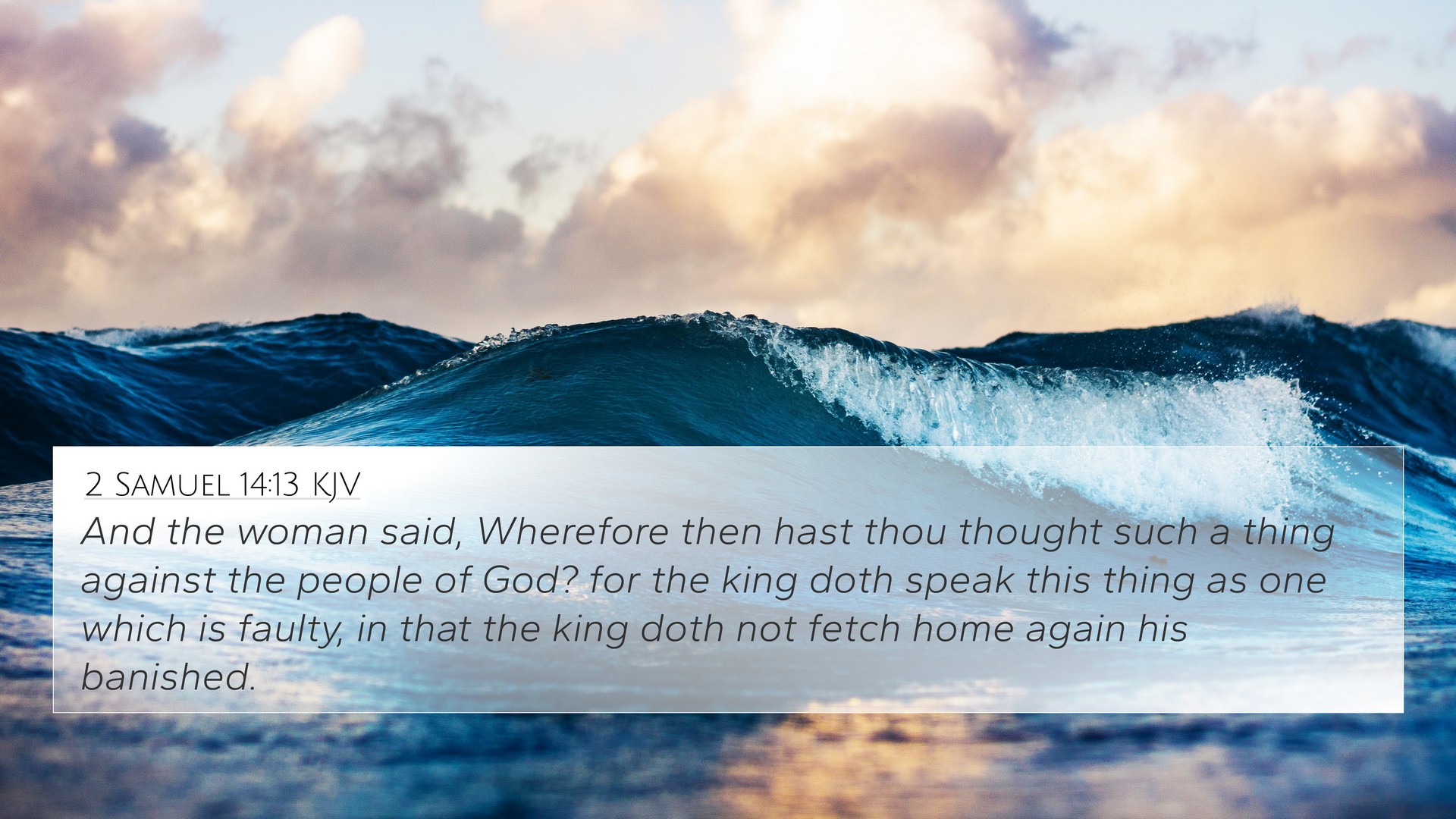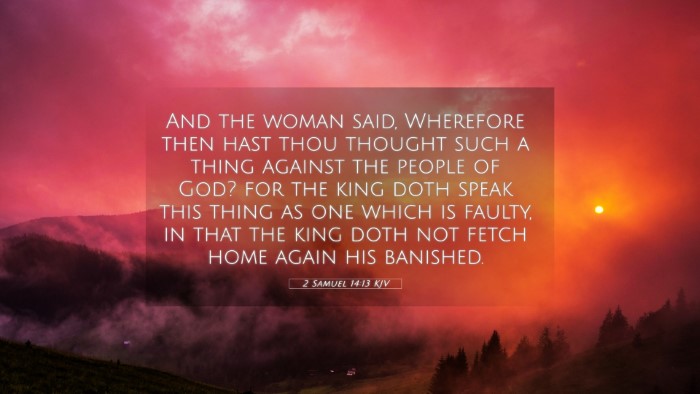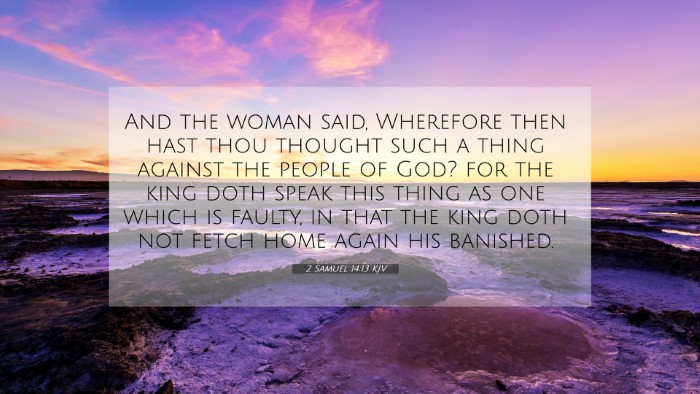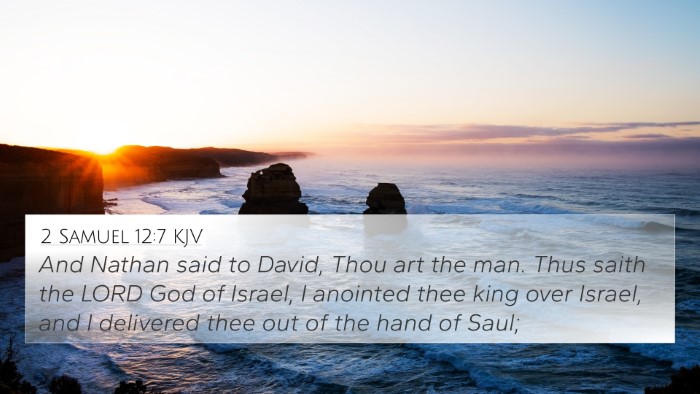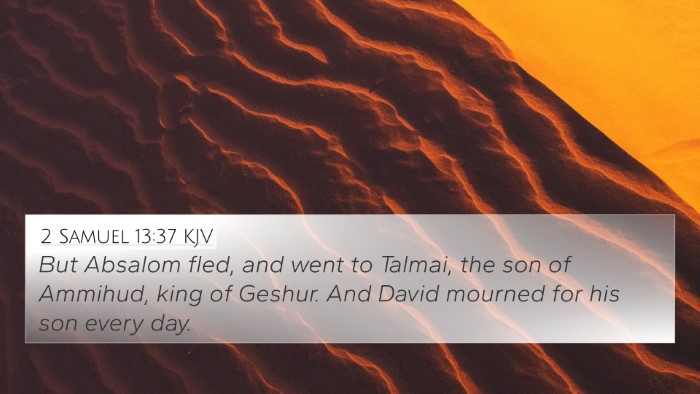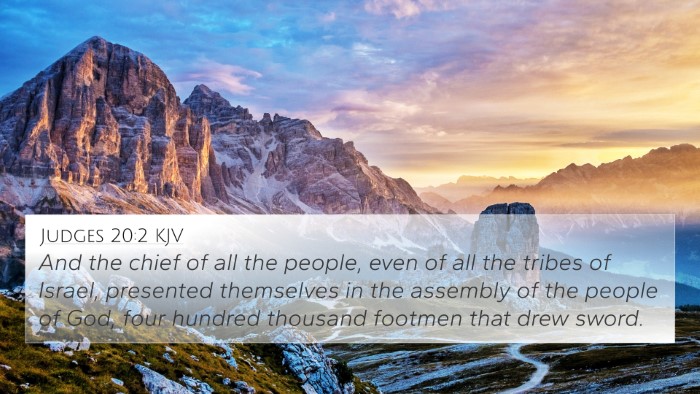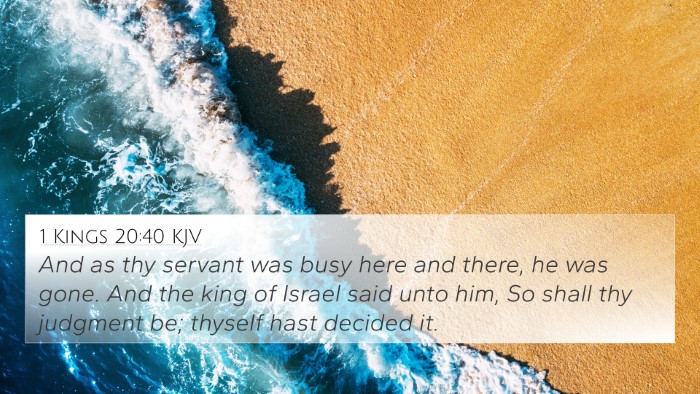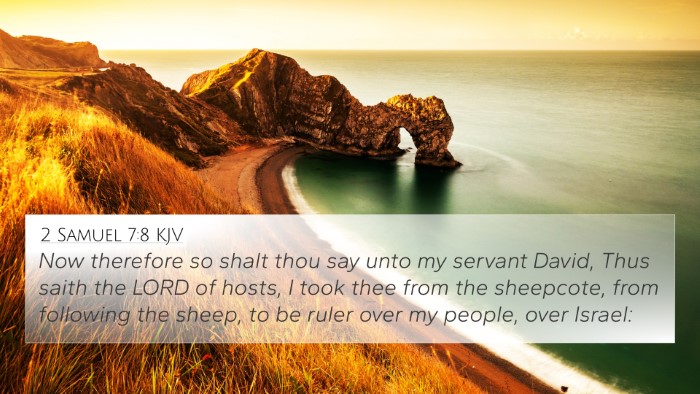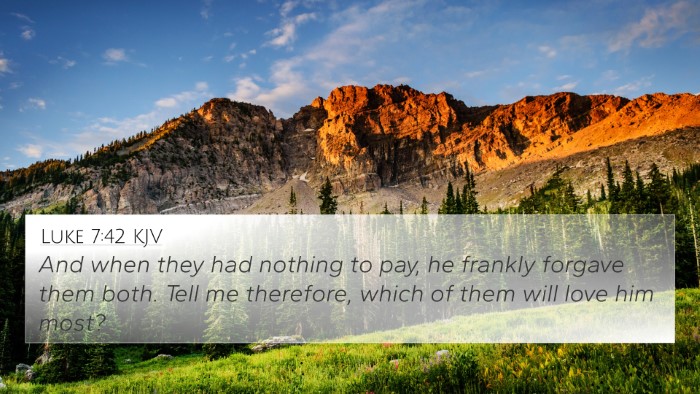Understanding 2 Samuel 14:13
Verse: “And the woman said, “Why then have you planned such a thing against the people of God? For in giving this decision the king concurs with the guilty, covering his son’s guilt.” (2 Samuel 14:13)
Summary of Meaning
This verse takes place in a dialogue where a wise woman from Tekoa confronts King David regarding his decisions. She highlights the tension between justice and mercy, suggesting that David's choice may inadvertently support the wrongdoing of his son, Absalom.
Insights from Public Domain Commentaries
- Matthew Henry: He emphasizes the importance of justice, pointing out that the wise woman uses her rhetorical skills to make the king reflect on the implications of his judgment. Henry notes that the king's decision could set a precedent that undermines the righteousness expected of his rule.
- Albert Barnes: Barnes suggests that the woman represents the voice of the people, expressing concern over the king’s apparent favoritism towards his son Absalom. He highlights the moral dilemma posed: should familial love override justice? Barnes associates this with broader Biblical themes regarding the consequences of sin and the need for accountability.
- Adam Clarke: Clarke reflects on the motives behind the woman’s words, arguing that she is attempting to illustrate the inherent contradiction in David's dilemma. He also draws connections to justice seen throughout the Scriptures, noting that a leader must uphold the law for all, including family members. Clarke emphasizes the need for a balance between mercy and justice.
Thematic Bible Verse Connections
This verse mirrors various themes throughout the Bible involving justice, mercy, familial relationships, and the consequences of sin. Below are some pertinent cross-references:
- 1 Samuel 15:29: Highlights God's unwavering nature regarding guilt and judgment.
- Proverbs 21:15: Discusses the joy of doing right versus the torment of doing wrong, complementing the moral inquiry in 2 Samuel 14:13.
- Matthew 18:32-35: Relays the parable of the unforgiving servant, illustrating consequences for failing to embody mercy.
- John 7:24: Jesus’ call for righteous judgment invites an exploration of appearances versus truth, relevant to the king’s actions.
- Romans 2:1: Encourages self-examination before judging others, pointing to the complexities King David faces.
- Galatians 6:7: Reminds individuals that one reaps what one sows, linked to the themes of sin and consequence in David's life.
- 2 Samuel 12:7-15: God’s judgment on David for his sin regarding Bathsheba shows the direct consequences of failing to administer justice.
Importance of Cross-Referencing in Biblical Studies
Understanding the connections between Bible verses enhances the interpretation and comprehension of Scripture.
- Tools for Bible Cross-Referencing: Utilize a Bible concordance or a cross-reference Bible study guide for effective exploration.
- How to Use Bible Cross-References: Look for similar themes or narratives that illustrate broader biblical truths.
- Inter-Biblical Dialogue: Engage with Scripture based on thematic links - for instance, examining familial themes across the Old and New Testaments.
Key Takeaways
As we meditate on 2 Samuel 14:13, it becomes clear that:
- Justice and mercy often stand in tension, requiring carefully considered decisions.
- The wisdom in Biblical narratives frequently calls for deeper reflection on moral dilemmas faced by leaders.
- Cross-referencing Scripture not only enriches our understanding but also invites us into a dialogue with God's Word across the ages.
Conclusion
2 Samuel 14:13 serves as a profound reminder of the complexities of leadership and the need for wisdom in decision-making. As believers, unfolding these layers through comparative Bible verse analysis allows us to grasp the fullness of God's Word and its applications within our lives.
